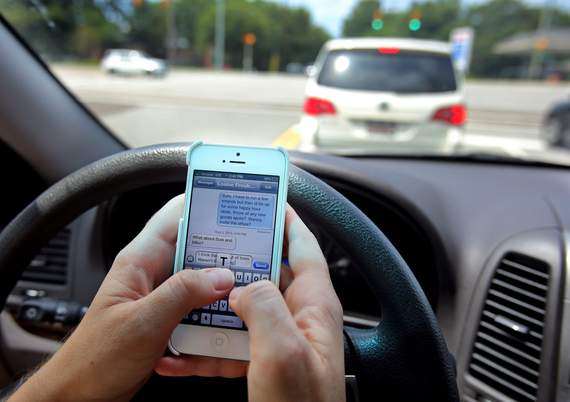If you’ve been involved in an accident where you were not at fault, you may be wondering if you still have to pay your insurance deductible. This is a common concern for many individuals seeking compensation for damages and injuries.
In this article, our Charleston car accident lawyers will explore the intricacies of insurance deductibles according to South Carolina law and provide you with a comprehensive understanding of your options. If an in-depth explanation is needed, our law firm provides auto accident victims with a free consultation.
What Is an Insurance Deductible?
To comprehend whether you have to pay your deductible if you were not at fault, our Charleston personal injury lawyers can help you understand how an insurance deductible plays a part in your auto accident claim:
An insurance deductible is the amount of money you are responsible for paying out of pocket before your insurance coverage kicks in. Deductibles are typically set when you purchase your insurance policy and can vary depending on the type of coverage you have. Common types of insurance deductibles include:
- South Carolina auto insurance deductibles
- South Carolina health insurance deductibles
- South Carolina homeowners insurance deductibles
What Is the Purpose of an Insurance Deductible?
The purpose of an insurance deductible is to share the financial responsibility between the insured individual and the insurance company. It ensures that the insured party has some level of financial commitment in the event of a personal injury claim. Since South Carolina isn’t a no-fault state, you may not need to pay your deductible at all after an auto accident.
For a free legal consultation, call (843) 380-8350
Does Fault Determine Who Pays My Insurance Deductible in South Carolina?
In South Carolina, fault can determine who pays an insurance deductible. If you are found to be at fault for an accident, you will generally be responsible for paying your own insurance deductible. This means that you will need to cover the deductible amount out of pocket before your insurance coverage kicks in.
On the other hand, if you are not at fault for the accident, you may not have to pay your deductible if you weren’t deemed responsible for damages. However, it’s important to note that the specific details can vary depending on the insurance policy and the circumstances of the accident.
Does Shared Fault Impact Who Pays My Deductible in South Carolina?
If you shared fault in an auto wreck with another driver, you may have to pay your deductible. South Carolina implements modified comparative negligence principles that allows for the allocation of fault and damages based on the extent of each party’s negligence.
For example, let’s say you were involved in a car accident where you were found to be 30% at fault and the other party was found to be 70% at fault. If your insurance policy includes a deductible, the amount you would pay may be reduced by 30% to reflect your degree of fault. This means that you would only be responsible for paying 70% of the deductible amount.
What Happens if the At-Fault Party’s Insurance Denies Liability?
If the at-fault party’s insurance denies liability, you may need to pursue other avenues for compensation. In South Carolina, you can file a claim with your own insurance company under your uninsured/underinsured motorist coverage, if you have it. Alternatively, you may need to consider taking legal action against the at-fault party to seek compensation for your damages.
Click to contact our personal injury lawyers today
Can I Recover My Deductible Directly From the At-Fault Party?
In South Carolina, you generally cannot recover your deductible directly from the at-fault party. However, you may be able to seek reimbursement for your deductible through a process called subrogation, where your insurance company seeks reimbursement from the at-fault party’s insurance company.
How Long Does the Subrogation Process Typically Take?
The duration of the subrogation process can vary depending on the complexity of the case and the cooperation of the involved parties. With the help of a Charleston motorcycle accident lawyer or a Charleston truck accident attorney, the process may be expedited as having legal representation ensures a smooth, ongoing process.
Complete a Free Case Evaluation form now
Are There Any Time Limits for Filing a Claim in South Carolina?
You may not have to pay your deductible for a no-fault accident, but there are time limits for filing a claim in South Carolina. These time limits are known as statutes of limitations and vary depending on the type of claim. It is important to be aware of these time limits, as failing to file a claim within the specified timeframe can result in the loss of your right to seek compensation.
- Personal Injury Claims: In South Carolina, the statute of limitations for personal injury claims, including car accidents, is generally three years from the date of the accident or injury.
- Property Damage Claims: For property damage claims, such as damage to your vehicle in a car accident, the statute of limitations is also three years from the date of the accident.
Should I Get a Lawyer to Avoid Paying My Deductible if I Was Not at Fault?
If you have to pay your deductible for an accident for which you were not at fault, it may be best to consult with the Thumbs Up Guys at Miller, Dawson, Sigal & Ward. Navigating insurance policies, fault determination, and subrogation can be complex and overwhelming. In such cases, our qualified personal injury attorneys can help.
We are highly skilled in our field of law and can provide you with strategic guidance, negotiate with insurance companies on your behalf, and ensure that you receive the compensation you deserve, including the recovery of your deductible. Contact us today and schedule a free consultation for a member of our team to review your case.
Call or text (843) 380-8350 or complete a Free Case Evaluation form





